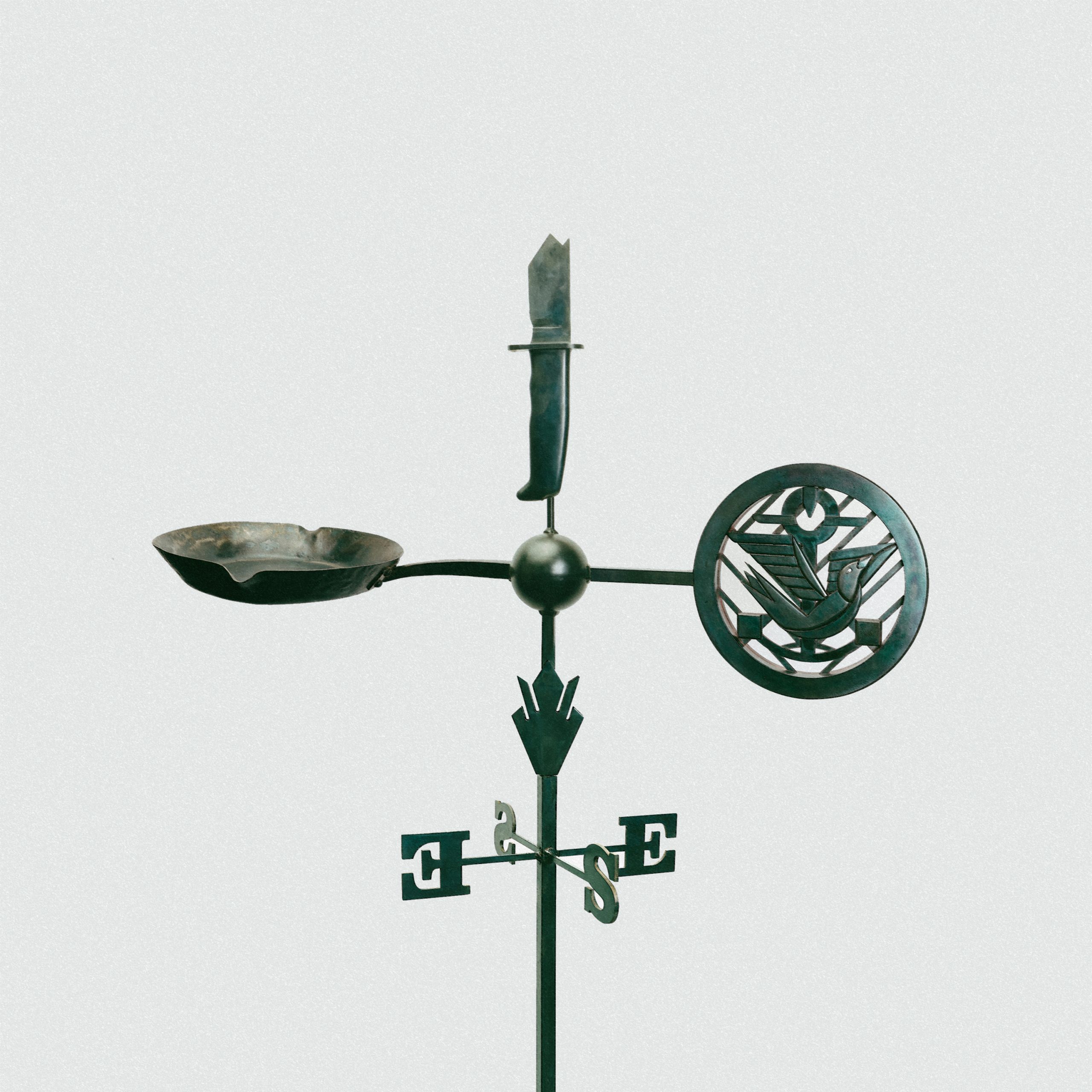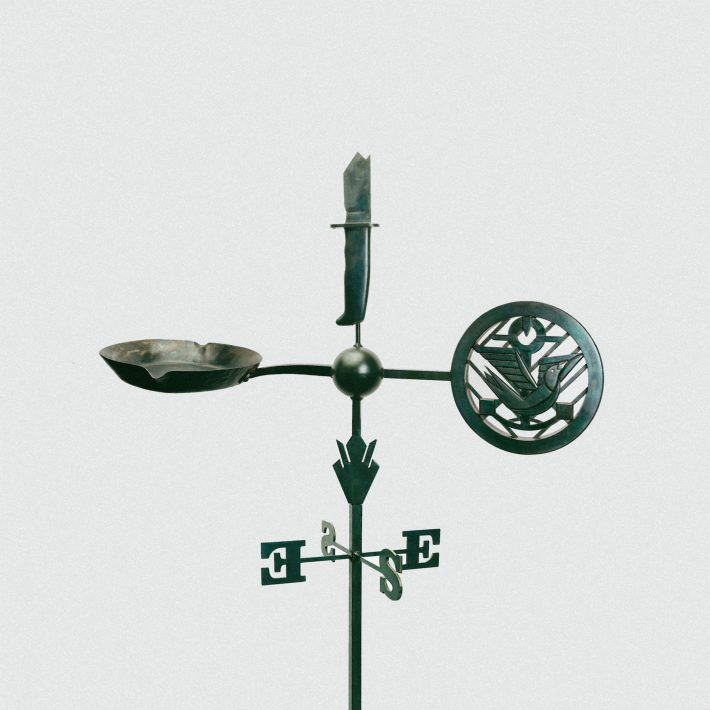- Southeastern/Thirty Tigers
- 2023
In hindsight, calling the album Reunions was funny, in a bleak sort of way.
Not just any album, but that album — the one Jason Isbell released in May 2020, two months into COVID-19 lockdowns, when we had all never been farther apart from each other. The one Isbell and his band, the 400 Unit, recorded in Nashville during a testy time when his marriage to songwriter Amanda Shires hung by a thread. The one with songs about deadbeat dads and departed friends and eventually having to give up your little girl to her own blossoming life.
Director Sam Jones' excellent recent documentary Jason Isbell: Running With Our Eyes Closed provides crucial insight into the making of the album and the interpersonal relationships that colored it. At one point, after Isbell tells Shires her fiddle playing sounds too loud, cracks begin to form. A joint interview later finds Shires explaining Isbell's demeanor during recording: "Sometimes he needs a lot of space. He's a big fucking man."
"You're goddamn right," Isbell agrees. "I'm a man from Alabama, for Chrissakes."
That declaration is in conversation with every lyric Isbell's ever written, from the three albums he made with the Drive-By Truckers in his twenties to the eight LPs he's recorded under his own name, on his own and with the 400 Unit, since 2007. But it especially calls to one line from "Middle Of The Morning," a standout from his latest, Weathervanes, out this Friday. "I ain't used to this, seeing everybody's hand," he sings in a pretty twang on the ‘70s Dylanesque tune. "I was raised to be a strong and silent Southern man." He's talking about the pandemic, how it wore him out and how he tried to see the light in a very dark time. He's also reckoning with his identity. When he sings, "I know you're scared of me/ I can see it in your smile," visions swirl of Isbell with Shires and their daughter, Mercy, on their Tennessee farm during lockdown, tensions rising from a forced domestic retreat instead of a tour.
Running With Our Eyes Closed precedes the creation of Weathervanes, a long, ruminative look back at the past and the many shapes it takes. (Since this is an Isbell record, it also still sounds great at the summer backyard party.) But as both Isbell's career and his depth of songwriting have trucked onward, his work as a talented songwriter has yielded novel connections between his own past and present. Weathervanes lays these ties out plainly.
It's hard to picture Isbell as the strong, silent type, keeping his own demons locked up inside his mind, given that he's spent the last decade confronting them directly through his music. The more time you spend listening, the more you learn. His gift has always been his ability to put memorable words to difficult situations. He's anxious about his place in the world and how he benefits from institutional racism simply by existing as a white man. His most famous songs cover devastating cancer, the troubling but powerful story of how he fell in love and got sober, and the ephemerality of both love and life itself. He's become a spokesman for a kind of enlightened Americana artist, hyper-aware of his own shortcomings while using his platform as a musician of notoriety for good. His 2021 Georgia Blue covers album raised money for organizations that fight voter suppression in the Peach State.
Weathervanes exists amid all this history but requires absolutely none of it to enjoy. The 60-minute LP feels like a throwback to the CD era, where songs take their time to unfold and allow room for blazing alt-country guitar solos, examinations of how continued mass shootings change our collective psyche, and a pair of ending jams that stretch beyond the six- and seven-minute marks, respectively. It also adds several new gems to the Isbell catalog that will sound absolutely killer coming out of loud amplifiers at outdoor venues all summer.
When Isbell reaches into his upper register to announce he's tired on the aforementioned "Middle Of The Morning," it's easy to imagine the amphitheater crowd doing the same. The exploratory breakdown of "This Ain't It" recalls Wilco at their cheeriest thanks to dual guitars from Isbell and Sadler Vaden. Epic closer "Miles" veers close to prog — which, hell yeah — complete with menacing rhythm from drummer Chad Gamble and bassist Jimbo Hart. Even the opioid-addiction folk song "King Of Oklahoma" seems to float with golden, echoing open chords. Isbell counts that one, along with Austin City Limits shoo-in "When We Were Close" and Southern ode "Cast Iron Skillet," as part of a suite he calls "The Old Assignment" — tunes in the style of what he penned during his days in the Drive-By Truckers.
But there's also the ache of the unknown and the fears of the modern world, which Isbell writes about with stinging clarity. "Save The World," the most explicitly topical song, finds him tackling the Uvalde school shooting and how the toxic gloom of one maniac's actions affect all of us. Over anxious keyboards from Derry deBorja, Isbell handles this delicately but directly, singing about panicking in the grocery store and considering homeschooling for his own young daughter.
These autobiographical lines mingle with others on the album that at first can read like they might be likewise ripped from real life. "They were just kids when I came in this world," he sings about the quarreling mom and dad on "Volunteer," reflecting his own story. But while his folks are still very much alive, the parents in the song aren't: "I was a kid when they died." The character bounces around to foster homes and longs for a better life working on a Colorado cannabis farm. As such, "Volunteer" is one of a few that offer potential alternate timelines for how Isbell's life might've turned out if things had gone another way. The narrator of "Death Wish" fights to save a partner losing a battle against addiction, and "When We Were Close" chronicles one musician's ascent and another's fall. It's a testament to his strength as both a songwriter and a well-adjusted dude to be able to mine this territory without lingering in that negative headspace.
Weathervanes arrives at a significant time. Its June 9 release date puts it two days shy of the 10-year anniversary of Southeastern, the album that changed Isbell's life. It's the one that began him on the path to eventually land a Scorsese role and a Billions cameo. It's also the one he knows all of his subsequent albums will be compared to. "My job is not to beat that record, and I'll drive myself crazy if I try to do it," he recently said. Part of what makes Weathervanes different is the absence of Nashville producer Dave Cobb, who helmed Isbell's previous four albums. This time, Isbell himself gets the production credit, shared on five tracks with engineer Matt Pence.
It's hard not to think of Southeastern when looking at the cover art, an actual weathervane designed by Isbell and created by Atlanta designer and metalworker R. Beckmann. Along with only pointing two directions (south and east), the objects adorning it come from the lyrics of "Cast Iron Skillet" and a tattoo of an anchor and sparrow both Isbell and Shires share. The very materials used to make a weathervane also evokes Southeastern's meaning: Isbell's father worked at a tool-and-die shop with that name. "I thought of the place as a dungeon, so I wanted to reclaim that for my own purposes," he said in 2013.
To that end, Isbell has spent more than 15 years creating an entire world of his own. Weathervanes, as the latest entry, continues to expand it while suggesting some hypotheticals — a healthy if taxing mental enterprise. I can't hear "When We Were Close" without thinking of the late Justin Townes Earle, with whom Isbell played (notably on Letterman in 2011) and who bought the suit Isbell wore at his own wedding. It doesn't matter if the song is literally about Earle or not; enough lyrical signifiers are there to plant the image. The rock star heralded in the lyrics is somebody whose "shirt cost more than [his] guitar," and Isbell sings of his legacy: "I saw a picture of you laughing with your child/ And I hope she will remember how you smiled." She'd have to remember, because he's gone now.
Isbell leaves things on a damning question. "You traveled beyond the great divide/ Oh but why haven't I?" No one can ever know. The best Isbell songs keep trying to find the answers anyway.
Weathervanes is out 6/9 on Southeastern/Thirty Tigers.
We rely on reader subscriptions to deliver articles like the one you're reading. Become a member and help support independent media!







